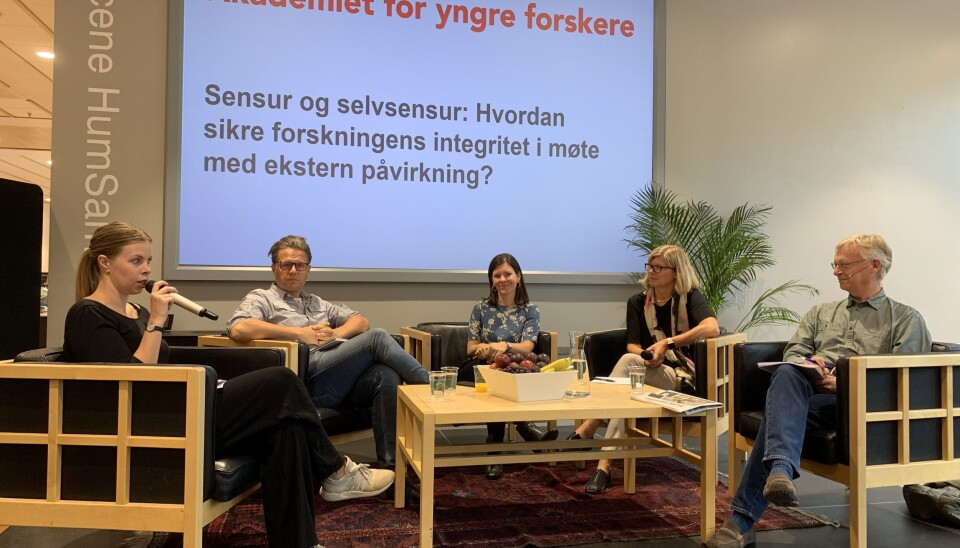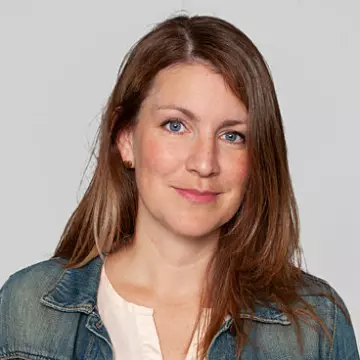
Researchers under pressure: “We can't conduct secret research.”
There are contracts, and then there are ethical guidelines for research. But money easily leads to pressure, even in the Ivory Tower of research.
Researchers at the Institute for Social Research (ISF) were recently invited by colleagues in Brussels to respond to a research announcement by the European Commission. It was an intriguing project, they would have access to interesting data and the researchers were excited to take on the assignment.
“But then the contract terms sent out with the announcement said that nothing can be published without the written consent of the Commission,” said Tanja Storsul, ISF director.
“As director, I have to say that this is not acceptable. It wasn’t a great feeling then and there to say no, but we can't do secret research,” she said.
Younger researchers particularly vulnerable
“Research under pressure” was the theme of a session at the Young Academy of Norway’s meeting on “Censorship and self-censorship: Ensuring research integrity in the face of external influences.”
There have been attempts by those who have paid for a piece of research, to alter conclusions, even in Norway. Framework conditions for the research have been narrow. Projects have been formulated in such detail that the conclusion is almost self-evident. Results have been covered up. There are many anecdotal examples.
"We don’t have good data about when this happens, and it is not clear where the boundaries are," said Mari Elken, a member of the Academy and a researcher at NIFU, the Nordic Institute for Studies of Innovation, Research and Education.
“But from the survey conducted for RINO (the Research Integrity in Norway project) we know that younger researchers are particularly vulnerable when it comes to questionable practices. It has to do with power hierarchies, because younger researchers do not have the same kind of power as senior researchers,” she said.
Roughly 7,000 researchers from all over Norway responded to the RINO survey. Two reports have been published and a third is on the way.
However, in another survey conducted by the Academy among younger researchers, few responded that they experienced this kind of undue pressure, she said.
“We’re not trying to say that this is common, that it happens all the time. But even a few cases are too many. And this is a phenomenon that needs to be discussed,” she said.
Important to have the right contract
So how do you ensure that a research assignment is free and independent? For ISF’s Storsul, it starts with the announcement, which contains information on the contract. When public officials in Norway commission research, they have a special contract that was developed precisely for this purpose — the State standard agreement for research.
It hasn't always been that way.
Knut Ruyter is the University of Oslo's new academic ombud but has worked for many years in the Norwegian research ethics system. Just over 15 years ago, he helped create a report on contract research, or research that someone has commissioned and paid for.
"One of our findings, which surprised us at the time, was the willingness of scientists to compromise results in order to be awarded the contract," Ruyter said.
“There were different reasons for this. It might be that the researchers depended on the support, or future support from the institution, so they wanted to have a good relationship with the commissioning group. Others justified the compromise by saying that it wasn’t a great thing to do right now, but that in the future they could use some of the funds to do proper research,” he said.
One of the consequences of the report was the creation of the standard agreement in 2006, which was revised in 2012. The agreement aims to ensure that research is free and independent. Among other things, it states that results should be made public no later than three weeks after the end of the project.
“For us, these are absolutely crucial conditions,” says Storsul.
“Researchers who have worked in the field for a long time say that this agreement has been inspiring and has raised awareness in clients,” she said.
Who takes assignments scientists don’t want?
But who accepts the assignments that Storsul and other serious researchers refuse, because the conditions don’t meet research ethical standards?
"There is a whole new sector out there with consulting firms and others taking on these assignments," said Vidar Enebakk, Director of the Norwegian National Research Ethics Committee for the Social Sciences and Humanities (NESH).
“It’s a new and large grey zone with unclear boundaries. What is a ministry report? What is an analysis? For NESH, the questions of what contracts are out there, and who takes these assignments are of high interest. Most of the contract research is quite well regulated, but there is so much else out there too,” he said.
Enebakk said questions related to research under pressure are among the most urgent enquires his group gets.
He says there needs to be greater awareness of how the concept of what is considered research has changed.
“According to the Norwegian Ministry of Education and Research, more than 50 per cent of Norwegian research is conducted by business and industry. But is this free and independent research? ‘Research’ no longer automatically means the same as free and independent research,” Enebakk said.
“Universities need to figure out what they think about this issue. There are some boundaries and differences that should be upheld. Figuring this out is a common task we have to tackle,” he said.
——————































